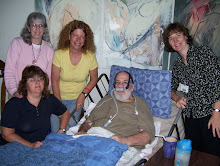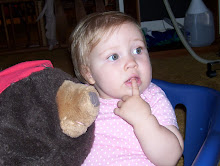 Growing up in Rotterdam, New York in the late 1950’s was not the same experience as yours. We were the beginning of the suburban sprawl, the first of the “white flight” after WWII. We lived in a “housing development”. This was a newly coined phrase, which basically meant that you lived in a pre–war country setting now called the suburbs. Levittown, Long Island was the benchmark, where thousands of “tract” houses were built. Tract meaning large land areas were purchased where streets were laid out block after block, each house identical to the next. The Rotterdam example of this would be Coldbrook.
Growing up in Rotterdam, New York in the late 1950’s was not the same experience as yours. We were the beginning of the suburban sprawl, the first of the “white flight” after WWII. We lived in a “housing development”. This was a newly coined phrase, which basically meant that you lived in a pre–war country setting now called the suburbs. Levittown, Long Island was the benchmark, where thousands of “tract” houses were built. Tract meaning large land areas were purchased where streets were laid out block after block, each house identical to the next. The Rotterdam example of this would be Coldbrook.I can’t stress enough that this building frenzy was at its very beginning. Rotterdam itself was different. As commercial as it is today, it was rural then.
Our dads all worked at the General Electric plant as machinists, crane operators or some other blue-collar job. None of them had any college and most were vets. My father was a vertical boring mill operator trained through the General Electric Company Apprentice program. He started the program after graduating from high school at the end of the Depression in 1937. While training he made $11 a week. My father worked on the same machine, in H bay of building 273, Large Steam Turbine, on the third shift; 11:00 p.m. to 7:00 a.m., for 47 years. Think about that. Same job over and over again.
Our mothers stayed home until all the kids went to school and then went to work. There’s kind of a myth that most mothers were housewives and didn’t work outside the home, but if you take time and look you’ll see it isn’t true. When I left high school the development had tripled in size and only two moms were staying at home in the entire neighborhood.
An access road lead into the development from one of the main town roads to a circle of houses, approximately thirty, on four short streets. One road in, the same road out. Each lot was clean cut or had virgin plants, tiny bushes and trees about six feet tall. The streets were crushed stone. I think I was in junior high before the streets were paved. The whole thing was surrounded by woods and farmland. The western boundary of our neighborhood was a barbed wire fence bordering a dairy farm. I remember fondly, as a little guy, climbing the barbed wire along the post to sit on the top of the post and wait for a cow to come close enough so that I could jump on her back. Riding a cow was a big deal to a six-year-old growing up on Roy Rogers and Hopilong Cassidy. I’m sure that at some point “ yippy eye aye” and “ya hoo!” spilled from my mouth! Many an afternoon my mother swatted my ass for coming home smelling like cow shit. Yes, ass swatting was the norm. If you messed up, expect to pay in pain.
The houses were basically all the same layout, but the exteriors were slightly different. Some were more “finished” than others. Each started as a house with a basement and two floors. The starter model had an unfinished basement and attic. The first floor had a kitchen, living room, dining room, two bedrooms and a bathroom. Buyers could add a fireplace, bedrooms and bathrooms upstairs or a rec room in the basement. Our house was the basic
starter model with a fireplace. We fit since it was just my mother, father, my brother and me. This was the “baby boom”.
One of the reasons my parents had a “little” more was that they had been married for awhile and both had worked until my brother was born. Most of the kids were my age or younger. Including my brother, there were only four kids older. Many of the couples had been married for two to three years before buying their house. My parents moved in when I was one. Many of the couples were eligible for special mortgage programs because the husband had been in the war. Also two of the husbands were on 100% disability from the military. Unlike Social Security this type of disability allowed you to work. This enabled one of the mothers to remain a housewife when the kids went to school.
One man had been bayoneted in the chest. I had marveled at the scar many times, trying to imagine the nine-inch blade going in. His daughter told me that he had shot the other soldier and when he fell the bayonet stayed in his chest. The medic had removed the bayonet from the rifle but left it in his chest while transporting him. He still had nightmares about seeing the bayonet in his chest. The other man had been blown up during the Battle of the Bulge, the “Band of Brothers” story. Artillery hit right next to him, killing everyone in his foxhole but him. He had been riddled with shrapnel. The largest of his injuries were to his major organs but he fought hard and lived. The most noticeable scar was that he had lost an eye and wore a glass one.
The families handled their wealth at the extremes of differently. One family lived very simply. Their only thing was that they “finished “the upstairs into two bedrooms and a bathroom. Each of the three kids went to college and became a teacher. The word that comes to mind with the other family was extravagant. Their house was totally different from all the others. It was not a cape. They had chosen a ranch style house, which basically means all on one level. They also had the unheard of 2-½ bathrooms. Across the entire back of the house was a screened-in porch surrounded by a fieldstone patio. Just below the patio was a small in-ground swimming pool. This was a true luxury in the 1950’s. Later they were the first to get a color television. But what set them apart to make them truly extravagant in our father’s eyes was their choice of vehicle. My dad was a General Motors man. He usually purchased Chevys. The different lines came in different models. For instance, the Impala line came in the Biscayne, Bel Aire and Super Sport model. Each one added better accessories and options. The Bel Aire was the blue-collar model. The extravagant family was a Ford family and always purchased every available option. That’s something doctors or lawyers did.
Each morning kids would get up, watch the Three Stooges and Our Gang on TV, eat breakfast and then get thrown out of the house and told to go play outside. Every kid in Rotterdam had to be home at 4:30 in the afternoon, or at least that’s how it felt. The volunteer firehouse blew a siren every day at 4:30. There wasn’t a spot in town where that siren couldn’t be heard. That siren would blow and within a minute of its finishing every sandlot ball game, pick up basketball game, game of tag or double dutch would end. Like ants boys and girls headed across fields, down streets and through each other’s backyards heading home. It also acted as a reminder to get us home for the important afternoon television shows, which actually began at four. The Mickey Mouse Club was popular with the youngsters and American Bandstand was popular with everyone.
Lunch was different. When you got pushed out the door in the morning you knew that you’d catch lunch somewhere. All mothers understood that storming the beaches of France, gun fights and fighting Indians were much too important to give up to eat. It was a neighborhood understanding that if two or three extra kids were in your yard at noon, you threw each a peanut butter and jelly sandwich and life went on.
Now that I think about it that’s not true. The town was predominantly Italian, but where I lived was eastern European - Polish, German and Czech. My neighbors were named Karbowski, Dondalski, Drezdowski, Renkawicz and Lasak. I think that when the land for the houses first went on sale word got out at St. Adelbert’s Catholic Church, which was the local Polish parish. They did the mass in both Latin and Polish. Now my mother would fight to the death that she was German. Our name is Nichols but my mother’s maiden name was Vogel. She had four brothers and a sister. Two were born in Europe, one on the boat on the way over and two here. Her mother and father spoke German but had immigrated from what had been Prussia. After WWI it became Poland. So I would say that we were German speaking Poles. So pb and j wasn’t the norm.
I remember a lot of variety, with habits and what people had. Growing up in the 50s all of our parents were products of the depression. Some families had huge gardens and some canned their produce. So it was not unusual for a Mom to give you a fresh sliced tomato on bread with mayo or a piece of pumpernickel spread with about a ¼ of an inch of liverwurst spread on it with spicy mustard. Sometimes you got lucky and got guompkes or potato pancakes. When at an Italian’s house you would get pasta or just dip Italian bread in the pot of sauce on the stove. Today we would be accused of profiling but this is the way it was.










1 comment:
Nice article. well written and quite accurate. I myself grew up in Rotterdam being born in 1957. My friends and I would get together after school, ride our bikes till 5:00 "dinner time" . Back then everything seemed so safe and easy, your folks didn't worry about which friends house you were at, again as long as you were home by 7:00 on a school night. AAHH the great memories..
Post a Comment